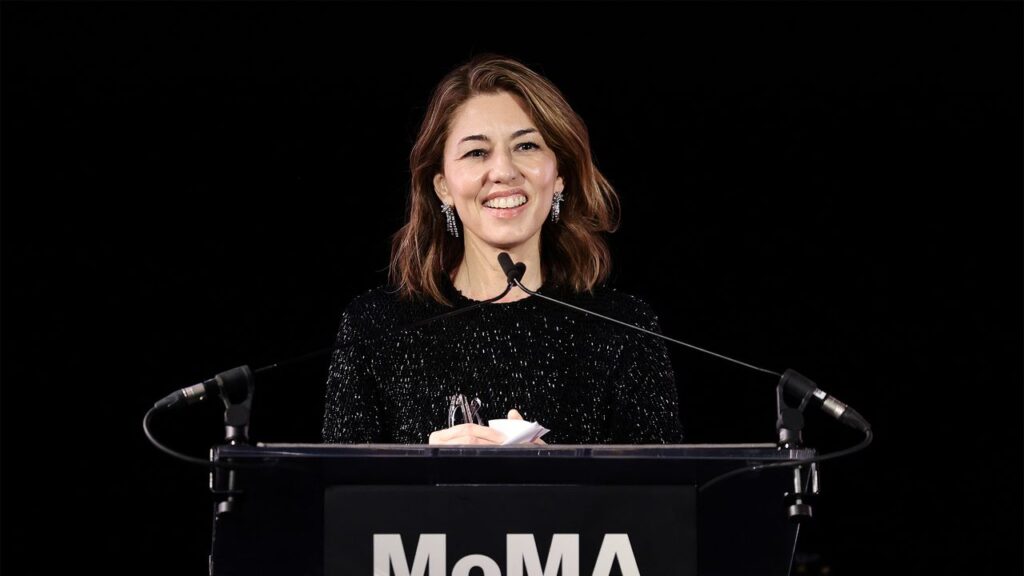If Sofia Coppola made a film about her life in 2025, she might title it Everything, Everywhere, All at Once. Twenty-five years after making her directorial debut with The Virgin Suicides, the filmmaker has premiered her first documentary, Marc by Sofia about her longtime friend Marc Jacobs; kicked off her monthly screening series at the newly-reopened West Village hub the Cherry Lane Theatre; launched a book tour for her late mother Eleanor Coppola’s posthumous memoir, Two of Me: Notes on Living and Leaving; and was thanked in the credits for both Celine Song and Kristen Stewart’s latest films. Coppola had an opportunity to take a victory lap at this year’s Museum of Modern Art’s 17th annual Film Benefit, presented by Chanel, where she was selected as this year’s honoree—putting Coppola in the company of past recipients and fellow auteurs Baz Luhrmann, Tim Burton, Pedro Almodóvar, Quentin Tarantino, Kathryn Bigelow, and Guillermo del Toro. “I can’t believe it when they asked,” Coppola told Vanity Fair shortly before the event on Wednesday. “It’s nice to pause and be like, ‘Oh wow, I have a body of work.’”
And what a body of work it is: Coppola won the Academy Award for Best Original Screenplay with Lost in Translation and landed famed costume designer Milena Canonero an Oscar for her now-cult classic Marie Antoinette. Coppola even vowed to change the perception of how female filmmakers are supposed to look: “The women directors who I was growing up with were like Penny Marshall – who is cool and great – but they always dressed kind of like guys,” Coppola said. “They weren’t feminine. I always made a point [to show that] I like clothes. You don’t have to all be in polo sleeves to be a director and work a camera, but also you do have to be practical on set.”
During the Film Benefit ceremony, held November 12 at the museum, Coppola’s Somewhere and The Beguiled star Elle Fanning ably summarized her legacy: Coppola has forever changed how “girlhood” is depicted in film. She spoke movingly about watching Coppola’s third feature, Marie Antoinette, in theaters: “Living in that cinema – in Sofia’s world – for a few hours, it would change my girlhood forever,” the actor and Coppola muse said. “It was a place I felt safe and seen, and I wanted to live in it 100 times over. I never knew that something could look so beautiful.”
Marc by Sofia lead producer Jane Cha Cutler echoed to Vanity Fair that Coppola was a revolutionary due to her keen eye. “She’s very tapped into that inner teenage girl in many of us — that in-betweenness of innocence and knowingness, the insecurity, the tenuousness, the excitement at becoming or experimenting at who you’re going to be,” Cutler said. “There’s a reason so many young people line up for Sofia’s book signings and love her films so much — they feel fresh and new, never stodgy or didactic.”

